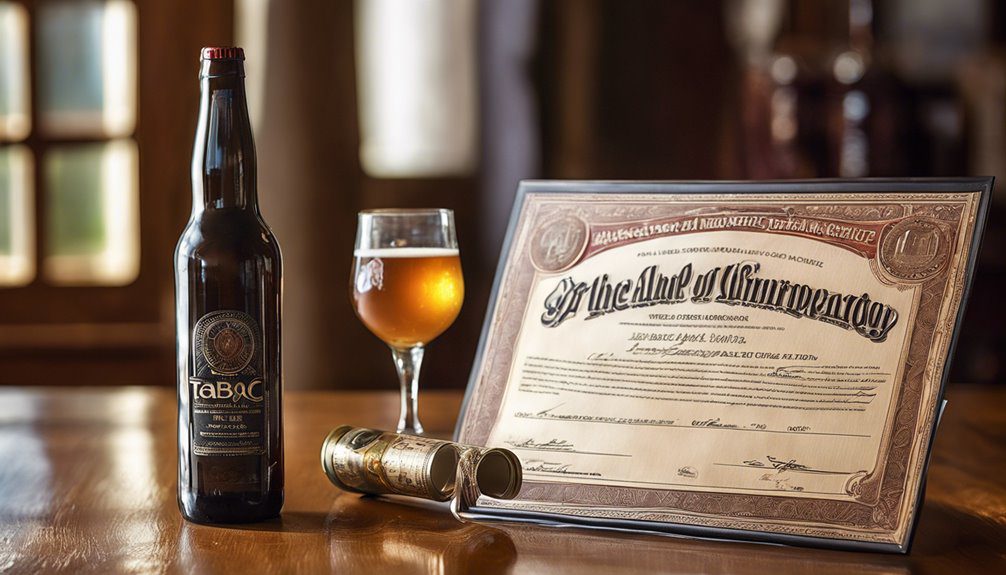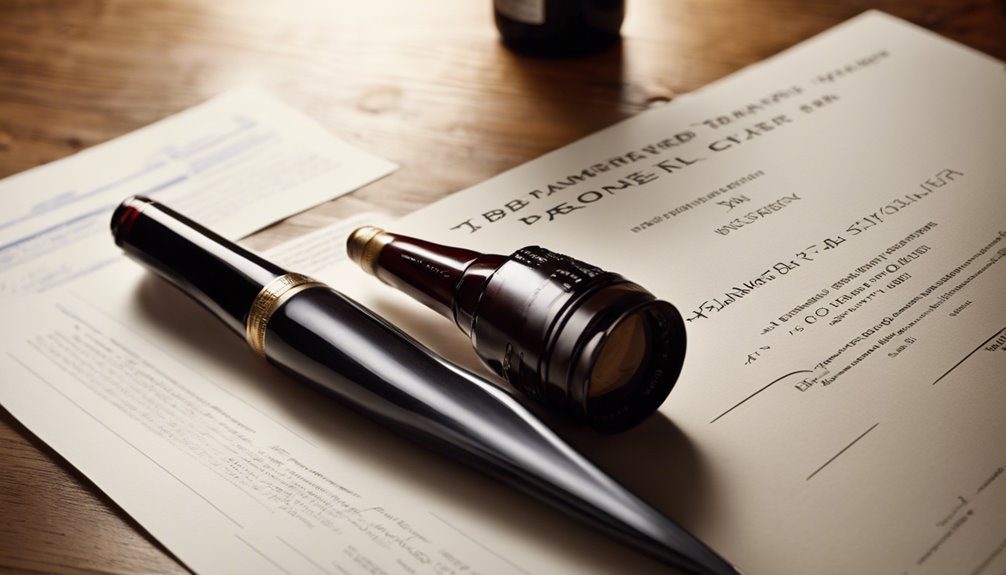When you consider the TABC Performance-Wine and Beer Retailer's Permit Bond, it's important to recognize its role as a $4,000 financial safeguard for your business. This bond not only ensures compliance with Texas alcohol sales laws but also builds trust with your customers and suppliers. However, navigating the application process and understanding the compliance requirements can be complex. You might wonder what happens if you miss a step or fail to meet the obligations tied to this bond, and the implications could be significant.
Understanding the TABC Bond

When you're diving into the world of Texas alcohol sales, understanding the TABC bond is crucial. This bond serves as a financial guarantee that ensures you'll comply with all state laws and regulations regarding the sale of alcoholic beverages. Essentially, it protects the state and consumers from potential losses due to your business activities.
To obtain a TABC bond, you'll need to secure a surety bond, which is a contract between you, the surety company, and the state. The bond amount varies based on your specific permit type, but for a wine and beer retailer's permit, it typically stands at $4,000. This amount acts as a safety net, ensuring that if you violate any regulations, the state can recover damages.
Applying for this bond isn't just a formality; it's a vital part of your licensing process. If you fail to obtain it, you won't be able to legally operate your business. Additionally, the costs of purchasing alcohol bonds can be influenced by your credit score, affecting the premium rates you may encounter during the application process.
Importance of the ,000 Bond
The $4,000 bond is a critical component of your wine and beer retail business in Texas. This bond acts as a safeguard for both you and the state, ensuring that you adhere to all regulations set forth by the Texas Alcoholic Beverage Commission (TABC).
By securing this bond, you demonstrate your commitment to operating your business ethically and responsibly.
If you fail to comply with TABC regulations, the bond provides a financial safety net for consumers and the state. It allows for potential claims against the bond in case of violations, ensuring that any damages or fines can be covered without burdening taxpayers or customers.
Having this bond in place also enhances your credibility with customers and suppliers. It signals that you're a trustworthy retailer who takes their legal obligations seriously.
Additionally, obtaining the bond can open doors for better business relationships, as many suppliers prefer to work with bonded retailers. Furthermore, the bond serves as a financial guarantee that protects consumers from potential losses due to violations or negligence in your business operations.
How to Obtain the Bond

Securing your $4,000 TABC performance bond involves a straightforward process that can be completed in just a few steps.
First, you'll need to find a reputable surety bond company or agent that specializes in TABC bonds. Research their credentials and customer reviews to ensure you're making a wise choice.
Once you've selected a bond provider, you'll complete an application. This typically requires basic information about your business, including the type of wine and beer retailing you plan to do, your financial history, and any relevant licenses.
Be prepared to provide personal identification and business documents.
After submitting your application, the surety will evaluate your creditworthiness and financial stability. If approved, you'll receive a quote for the bond premium.
Once you agree to the terms and pay the premium, the bond will be issued. Additionally, it's important to understand that contract bonds are essential for businesses participating in contracts requiring surety.
Compliance Requirements for Retailers
Compliance is crucial for wine and beer retailers aiming to maintain their TABC performance bond. To stay compliant, you'll need to adhere to several regulations set forth by the Texas Alcoholic Beverage Commission (TABC).
First, ensure that all employees involved in the sale of alcohol are trained and certified in responsible alcohol service. This training helps prevent sales to minors and intoxicated individuals.
Next, keep accurate records of all transactions, including purchases and sales of alcoholic beverages. Maintaining clear documentation not only helps you track inventory but also proves your compliance during inspections.
You should also be aware of local ordinances that may impose additional restrictions on your operations.
Additionally, ensure that your establishment complies with zoning laws and has the necessary permits. Regularly inspect your premises to ensure that it meets safety and health standards, as these can affect your compliance status.
Lastly, stay informed about any changes in TABC regulations, as laws may evolve over time. By following these compliance requirements, you'll help safeguard your performance bond and contribute to a responsible alcohol retail environment. Furthermore, understanding the purpose of surety bonds is essential for maintaining your business's financial integrity and compliance.
Consequences of Non-Compliance

Failure to adhere to TABC regulations can lead to serious repercussions for wine and beer retailers. If you don't comply, you risk losing your permit, which can halt your business operations. Without a valid permit, you can't legally sell alcohol, leading to significant financial losses.
Additionally, you might face hefty fines. These penalties can accumulate quickly, straining your finances and potentially driving you into debt. In some cases, repeated violations could result in criminal charges, not just fines, tarnishing your reputation in the community.
Another consequence of non-compliance is the risk of facing lawsuits from customers or other businesses. If you're found to be operating outside of the law, you're vulnerable to claims and legal actions that could further damage your financial standing.
Moreover, non-compliance can lead to increased scrutiny from regulatory authorities. This can result in more frequent audits, putting additional pressure on your operations and resources.
In the long run, maintaining compliance isn't just about avoiding penalties; it's essential for sustaining your business and reputation in the competitive wine and beer retail market.
Prioritize adherence to TABC regulations to safeguard your success.
Conclusion
In summary, the TABC Performance-Wine and Beer Retailer's Permit Bond is essential for your business in Texas. It not only protects you but also builds trust with your customers and suppliers. By understanding the importance of this $4,000 bond and following the necessary steps to obtain it, you can ensure compliance and safeguard your operations. Don't overlook the consequences of non-compliance—stay informed and proactive to keep your business thriving in the competitive alcohol retail market.


